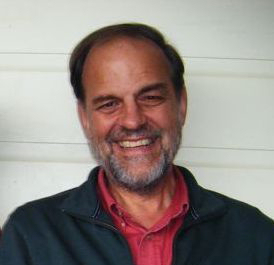May 7, 2016
An Online Class Facilitated by Robert Lee
Part of The Focusing Highlights Series
Many times you come to focusing early on and you work on dilemmas and you get a shift and something changes. You continue focusing and further shifts come. Eventually, bigger changes come out of these little changes. It works just like the "Focusing" book suggests. Little changes lead to bigger changes.
These are blessings and indeed we must sustain these blessings. However, many times dilemmas do not change so easily. You don't get a shift at all even as an experienced focuser. Or you get a shift initially, but then the subsequent shifts and movements do not come. Or you get a series of shifts and things are changing and moving along splendidly and suddenly you find yourself back at the beginning.
Robert calls things which change with great difficulty, the things which seem "unchangeable", "macros". He calls the dilemmas which respond relatively smoothly, "micros". Micros are not small or inconsequential. Think macro-economics and micro-economics, both are very important.
Domain Focusing was developed not only for work with micros, but also to be able to handle macros.
Domain Focusing has three domains: thinking, feeling, and empathy. The domains are not mutually exclusive but Read More ... one becomes dominant at certain points in the Focusing process and then it is important to know how to function in each domain. Robert sees Focusing as the linking and crossing between these domains. Each of the domains have ways of entering the implicit. Linking domains is often also an entering of the implicit. More specific names of the domains in action:
Thinking-situations, story, insight;
Feeling-exploring felt sensing;
Empathy: self-empathy.
Each domain has a logic functioning in the background.
Thinking: traditional logic
Feeling: logic of experiencing (Gendlin)
Empathy: logic of beingness. (aka logic of loving)
The self-empathy domain is also the wisdom domain. It is designed to honor and access your knowing from faith of whatever tradition-Christianity, Buddhism, Hinduism, Judaeism, Islam, Shamanism, Paganism and also other kinds faith, in philosophy, in science, in art, etc.
The careful linkage between domains in every direction makes for a precision which can enhance outcome or resolution of very complicated situations.
"Getting out of your head" is only indicated if you have detached your head from your body. It is much better to connect your head to your body or to recognize its intrinsic connection to your body than to try to eliminate it.
Changing the Unchangeable through Domain Focusing (Macroshifting) has a series of avenues for approaching and changing very difficult problems.
Robert has developed yearlong psychotherapy or coaching programs for giving you the support you need to change the unchangeable. . . with mental health, with physical health, with relationships, with family issues, with professional development, with community development, with growth in integrity, with spiritual growth, with social change. Macros take longer than a year to change. Often you can make it through one or two stages of the four stages of macroshifting in a year, but, depending on the macro, and how it is set up in you, it may be much slower than that. You may not make it through even the first stage in one year!
By combining individual psychotherapy, group psychotherapy, and focusing partnership, there is a way to make this macro-change more timely than usual, even more timely than good weekly individual psychotherapy. There is also a way to make the process remarkably affordable given the size of the task.
The words "psychotherapy" and "coaching" could really be replaced by the word "growth". As societies gain a great deal of wealth, they begin to cover psychotherapy in health insurance. But everywhere, health insurance and its coverage becomes complicated. Before societies gain a great deal of wealth, psychotherapy is usually not covered by health insurance and is not available to the general population for its cost. Robert intends to develop Macro-DF (Macroshifting/Domain Focusing) yearlong programs in psychotherapy, in coaching, in growth, so that it can move with what opens in different societal situations.
Bio:

Robert Lee, Ph.D. is a Focusing theoretician and innovator. He is an international leader in developing Focusing trainers, Focusing Oriented Psychotherapists (FOT) and Coordinators (who are authorized to teach trainers and FOT's). He led the Advanced Certification Weeklong at the Focusing Institute in New York for 7 years. A licensed psychologist, Lee has developed a new model for teaching focusing (Domain Focusing), he has developed a theory and practice for overcoming stubborn problems (Changing the Unchangeable through Domain Focusing-aka Macroshifting). He has developed a comprehensive practice for working with difficulties in felt sense formation (Elusive Felt Sensing). In psychotherapy, he has developed special methods for using focusing with anxiety and depression and with couple and group psychotherapy. He has developed cross-lingual focusing partnership which allows people with an imperfect common language to still have focusing exchanges which work. He has developed a method for language acquisition using focusing. He served on the Board of The Focusing Institute during its transition beyond the founder stage. For many years he served on the board for a consortium of humanistic and transpersonal graduate psychology programs, CDPP, which was inspired by Clark Moustakas, a close colleague of Eugene Gendlin.
